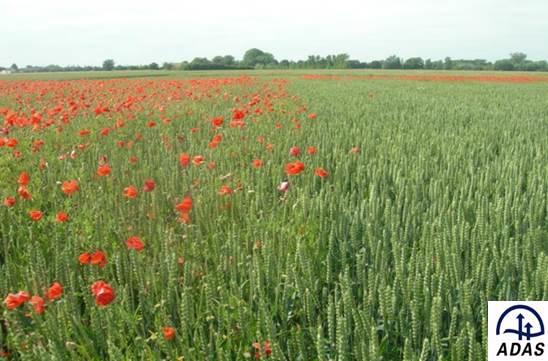- Poppy broadbalk
Resistance
ALS (sulfonylurea) resistant poppy, Papaver rhoeas, occurs in eight European countries, and was first detected in the UK in 2000. By 2016, there were >70 confirmed cases of ALS (sulfonylurea) resistance in nine counties mainly in eastern England, from Sussex up through East Anglia and Lincolnshire to Yorkshire. No cases have been confirmed in other parts of the UK. Most cases of resistance in Europe have been to ALS inhibiting herbicides (sulfonylureas), but resistance has been found to the synthetic auxin (2,4-D) herbicide in Italy and Spain.
Studies on UK populations have shown that resistance is conferred by ALS target site resistance mutations (Pro-197-Leu or Pro-197-His) although additional mutations have been found in Italian populations and are likely to exist here too.
Management Options
- If resistance to sulfonylurea (or related ALS herbicides) is suspected, collect a seed sample and have it tested.
- A long history of use of sulfonylurea herbicides and declining performance against poppy, when other susceptible weeds are still well controlled, indicates resistance is a likely cause.

- If resistance is confirmed, use (non-ALS) alternative herbicides such as pendimethalin, MCPA and the newly introduced halauxifen-methyl which remain highly effective on poppy.
- In the photo above, the left side was treated with metsulfuron, a sulfonylurea, which gave no control due to resistance, whereas the right side was treated with a pendimethalin based herbicide which gave virtually complete control.
- If sulfonylurea (or related ALS herbicides) continue to be used for control of other weeds, look out for signs of resistance in those other species. Resistance in poppy tends to be absolute, so assume that no control of this species will be achieved.
- Resistant poppy seeds are likely to persist in the soil seedbank for many years (>10 years) so it is unlikely that sulfonylureas can ever be used again for control of poppy in affected fields.